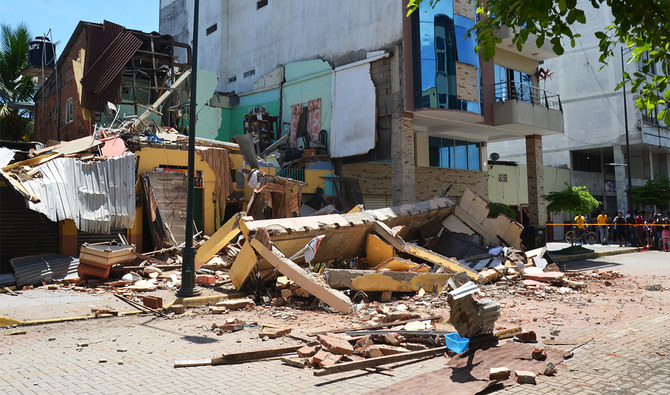The 6.64 magnitude earthquake in Balao has left several families homeless and many people affected. As of March 20, 2023, there are 14 deaths, 446 injured, 19 people affected and 84 homes destroyed. In addition, there are damages to 180 homes, 80 educational units, 22 public assets, 32 private assets, 33 health centers, 5 bridges and some highways in 5 provinces of Ecuador.
Various organizations from the public and private sectors are preparing actions to help the victims of the earthquake through donations of non-perishable food, money and other products. If you want to help, here’s what you can donate:
- Non-perishable food (canned goods, instant soup, rice, oil, sugar, noodles, beans, biscuits, energy bars, water, and hydrating drinks)
- Awnings or mosquito nets
- Repellent (check expiration date)
- Blankets and sheets
- Mattresses
- Clothes in good condition
- Alcohol or antiseptic gel
- Toilet paper
- Toothpaste
- Bath soap
- Toothbrush
- Small towels
- Plastic bags and cardboard boxes
Donations are being accepted at various collection points of both public and private entities. In the case of the government, donations are managed through the Ministry of Economic and Social Inclusion (MIES), through its zonal coordinators. There are other private initiatives to collect donations as well.
One of them is the Machala Equinoccial Rotary Club, which is receiving food, sleeping and hygiene kits for the affected families. Its collection centers are at 1613 Páez Street e/Sucre and 25 de Junio in the city, and next to the Puerto Bolívar Fire Department.
The Cecilia Rivadeneira Foundation is also accepting donations at its collection center on Simón Bolívar Avenue and Ruta Viva avenue in the south-north direction. The IMPAQTO coworking network is collecting donations at all its offices in Quito, including non-perishable food, hygiene kits with repellent and flashlight, diapers, sheets, dog food, and water.
The Azuay Prefecture is accepting donations of items such as bottled water, non-perishable food, personal hygiene kits, clothing, blankets, mosquito nets, and pet food, among others. Donations can be dropped off at the AgroAzuay premises from 08:00 to 16:00. These items will be distributed to the residents of Molleturo, Ponce Enríquez, and Pucará who have been impacted by the recent disaster.
National government help
Guillermo Lasso, the President of Ecuador, has activated the Emergency Operations Committee (COE) in response to the recent disaster, and has identified Azuay and El Oro as the jurisdictions that have been most severely affected.
“The relevant institutions have been activated and contingency teams are already mobilizing to provide support to those who have been affected,” the President said.
In addition to MIES, the Ministries of Health, Urban Development and Housing, and the risk management and child malnutrition secretariats are coordinating aid. These units are providing medical care and supplies to the victims.
The Ministry of Health is caring for the wounded in different hospitals in the provinces of Guayas, El Oro, and Azuay. MIES is providing care to families with psychologists and social workers. In El Oro and Azuay, the provinces hardest hit by the earthquake, MIES has started the work of “identifying victims to progressively provide humanitarian aid by delivering food, clothing, hygiene and first aid kits.”
The Ministry of Foreign Affairs is evaluating with the national COE the need for international cooperation.
The Ministry of Urban Development and Housing is in charge of coordinating the feasibility of social infrastructure and housing. They are evaluating habitability, as well as attention to the victims in order to define the “priority of attention to cases of poverty and vulnerability.”
They are deployed in the provinces of Guayas, El Oro, Los Ríos, Azuay, Bolívar, Cañar, Loja and Chimborazo for the “assessment of damage to the system to be able to monitor in real time” in conjunction with the National COE.
If you want to help, please consider making a donation to one of the organizations listed above. Your support will make a difference in the lives of those affected by the Balao earthquake.


0 Comments